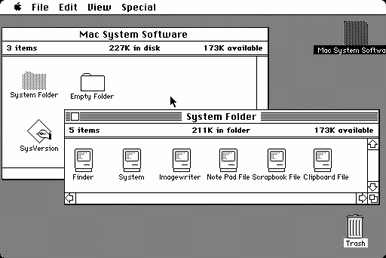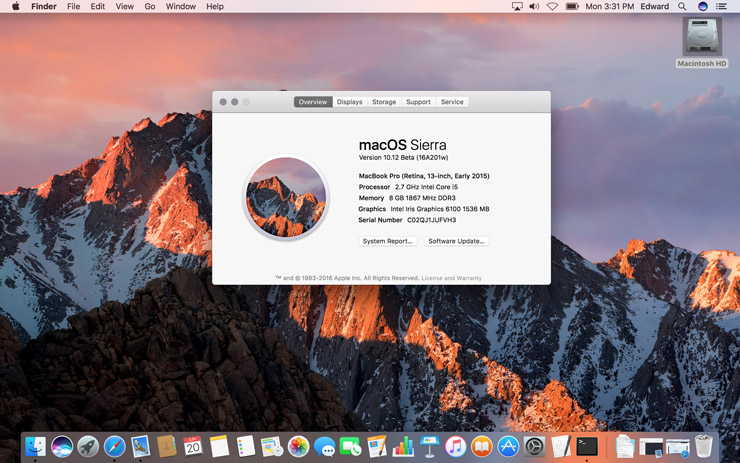G’day,
On 24 January, 1984 Apple released the first Macintosh computer, and with it the first Macintosh operating system - 1.0. Over the next few years Apple released subsequent updates of the software, increasing the numeral by approx 1 per year, reaching System 6 by early 1988.
System 6, which arguably was the pinnacle of the early Mac OS era, lasted for 4 years before finally being superceded by System 7 in 1991. Rather than simple revisions of previous versions, System 7 represented a major change to the way a Mac interacted with its human operatives. It reined for 6 years - when it was in turn replaced by System 8 - however unlike the last numeral change, System 8 was just going to be System 7.7 until Steve Jobs returned to Apple, and sought to shut down the Mac clone market - achieved via a legal loophole by renaming 7.7 into System 8.0.
Just 2 years later System 8 gave way to System 9, which again offered no major revision over its predecessors, but started to pave the way toward the Mac’s most revolutionary change - Mac OS X.
In 2001 Apple launched Mac OS X’s first official release - 10.0 “Cheetah”. The “System x” naming convention was replaced by “Mac OS X” - literally. This new operating system was the biggest leap seen on the Mac since its inception, both behind the scenes and at face value. Over the following 11 years, Apple released 8 updates, all named after big cats, before then releasing Mac OS 10.9 “Mavericks” in 2013 - named after a popular surf location. The naming departure however did not represent a huge difference in the OS itself, however having now reached 10.9, many expected the next release - surely “Mac OS XI” or 11.0, to offer a major revamp.
One year later in late 2014 Apple released Mac OS 10.10 “Yosemite”. Following the new naming trend of recreation locations, the new OS did not leap ahead to OS XI (ie OS 11), and did not leap ahead in style or function. 2015 and 2016 have similarly provided only “updates” to the Mac OS X model, not a game changer as seen by System 7, or the original OS X.
Back during the 90’s when System 7 was getting long in the tooth, Apple made several attempts to create a new OS for the Mac platform, however ultimately it was not until Steve Jobs returned that such breakthrough occurred. These attempts were - to some extent - public knowledge, with tidbits of information leaking out, and none of it well received, until Jobs stood in front of a crowd and extolled the virtues of a modern operating system.
Mac OS X has been in place now for nearly thrice the duration of System 7, and yet - has anyone heard any whispers of a new OS? Seriously - that’s the point of this thread! With iOS now seemingly given more attention than Mac OS (due fairly to the revenue streams that power Apple), many feel both the Mac and Mac OS have been left to languish. Features that have been created in recent years to offer some kind of added benefit to the user experience tend to be hit and miss. The potential to integrate the iOS and Mac OS experience seems to be poorly lacking, and those who favour Mac OS over the mobile platform fear such integration would result in a dumbing down of the Mac OS.
Are we ever going to see Mac OS XI? Will Apple skip the numbers and revamp the whole naming convention itself? Will iOS and MacOS unite into a single system? What is Apple doing over there in the mothership???
cheers
cosmic






